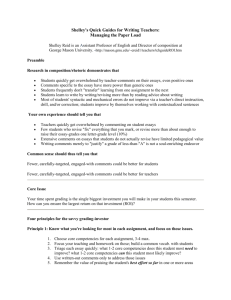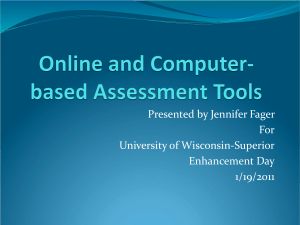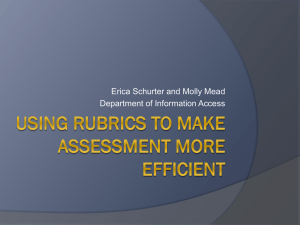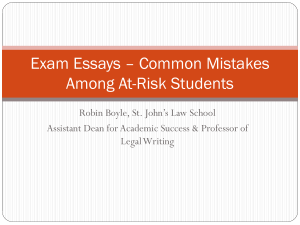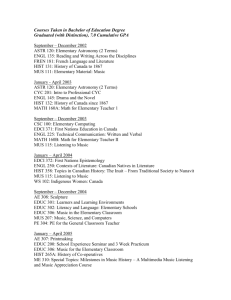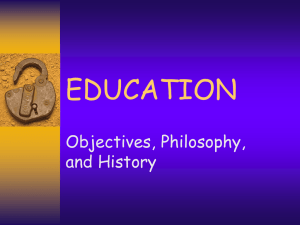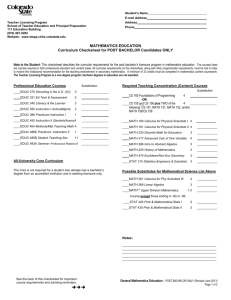Liberal Arts in Practice: Learning Outcomes Template
advertisement
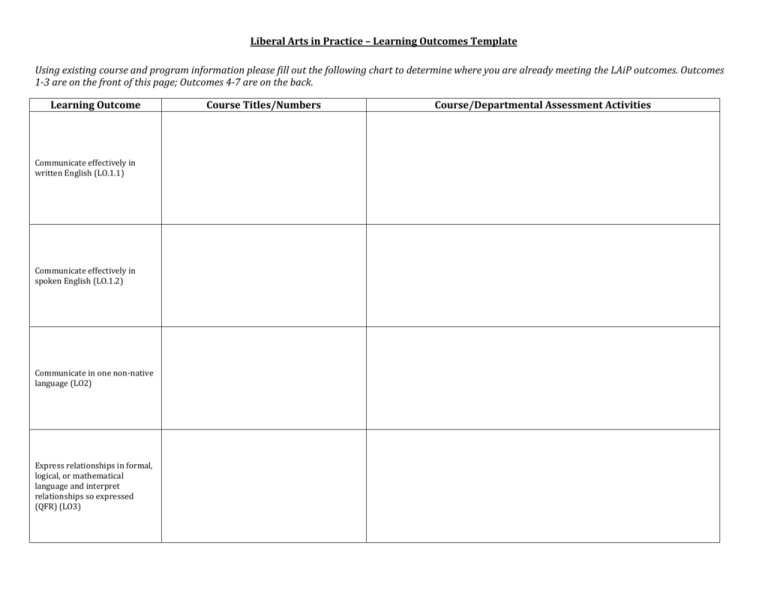
Liberal Arts in Practice – Learning Outcomes Template Using existing course and program information please fill out the following chart to determine where you are already meeting the LAiP outcomes. Outcomes 1-3 are on the front of this page; Outcomes 4-7 are on the back. Learning Outcome Communicate effectively in written English (LO.1.1) Communicate effectively in spoken English (LO.1.2) Communicate in one non-native language (LO2) Express relationships in formal, logical, or mathematical language and interpret relationships so expressed (QFR) (LO3) Course Titles/Numbers Course/Departmental Assessment Activities Learning Outcome Identify and evaluate the consequences of individual and collective values, beliefs, ideas, and actions (LO4) Develop, test, and evaluate hypotheses using appropriate information and methods (LO5) Produce interpretive or problem-solving creative work (LO6) Apply knowledge through practical experience (LO7) Course Titles/Numbers Course/Departmental Assessment Activities DRAFT Liberal Arts in Practice – Learning Outcomes: English Department Potential assessment points in blue; courses addressing learning outcome in black. Learning Outcome Communicate effectively in written English (LO.1.1) Communicate effectively in spoken English (LO.1.2) Course Title 110: Composition; 190: Intro to Lit & Crit; some 200-level W courses; 300-level lit. courses designated “Approaches”; 490: Sr. Project 115: Public Speaking; 300-level Approaches courses; 450: Sr. Seminar; 490: Sr. Project Evidence/Assessment Tools Multiple drafts of papers; longer paper incorporating primary and secondary sources, assessed with departmental or Writing Competency rubric. Public speaking rubrics; Seminar discussions; presentations; group oral examinations; Sr. Project defense. Communicate in one non-native language (LO2) Not applicable, although FLAC is a possibility. Not applicable Express relationships in formal, logical, or mathematical language and interpret relationships so expressed (LO3) Not applicable Not applicable Identify and evaluate the consequences of individual and collective values, beliefs, ideas, and actions (LO4) 300/400-level literature courses; 300level creative writing courses. 412, 413: Fiction Wkshp., Poetry Wkshp. Critical essays; response papers; journals; discussions of literary works. Original poetry, fiction, and drama. Develop, test, and evaluate hypotheses using appropriate information and methods (LO5) 190: Intro to Lit and Crit; 300/400level literature courses; 300/400-level creative writing courses. 412, 413: Fiction Wkshp., Poetry Wkshp.; 490: Sr. Project Critical essays; response papers; journals; discussions of literary works. Original poetry, fiction, and drama. Produce interpretive or problemsolving creative work (LO6) Apply knowledge through practical experience (LO7) K.H. Noling 6/23/08 213: Intro to CW; 310-312 CW classes; 411, 412: Fiction or Poetry Workshop; most 300/400-leve l literature courses; 490: Sr. Project Most CW courses (213, 310-312, 411412, 490); internships; study abroad Public readings; acceptance in Word of Mouth or other publication; assessment rubrics; evaluation by second reader. Public readings; acceptance in Word of Mouth or other publication; assessment rubrics; evaluation by second reader. Liberal Arts in Practice – Learning Outcomes Sample Template – Education Department Using existing course and program information please fill out the following chart to determine where you are already meeting the LAiP outcomes. Learning Outcome Course Title/Number Course/Departmental Assessment Activities EDUC 220, 304, 320, 340 (level 3 designation), 341, 342, 390, methods courses, student teaching, etc. EDUC 390; methods courses in various disciplines including English, Foreign Language, Physical Sciences, Mathematics, History, etc. for grades 7-12 and for elementary grades 1-6; Student teaching at both elementary and secondary levels Multiple drafts of papers; various rhetorical approaches – reflective essays, analytical essays, research papers, lesson plans, unit plans, etc.; Junior Review Portfolios; practicum and student teaching performance rubrics Communicate in one non-native language (LO2) Not applicable Not applicable Express relationships in formal, logical, or mathematical language and interpret relationships so expressed (QFR) (LO3) Not applicable Not applicable Identify and evaluate the consequences of individual and collective values, beliefs, ideas, and actions (LO4) EDUC 220, 304, 320, 340 (level 3 designation), 341, 342, 390, student teaching, etc. Multiple drafts of papers; various rhetorical approaches – reflective essays, analytical essays, research papers, lesson plans, unit plans, etc.; Junior Review Portfolios; practicum and student teaching performance rubrics Develop, test, and evaluate hypotheses using appropriate information and methods (LO5) EDUC 390; methods courses in various disciplines including English, Foreign Language, Physical Sciences, Mathematics, History, etc. for grades 7-12 and for elementary grades 1-6; Student teaching at both elementary and secondary levels [Students] planning instructional units, daily lesson plans, differentiated activities and then actually teaching them and assessing the level of student learning that may or may not have occurred as a result of the lesson/unit. Produce interpretive or problemsolving creative work (LO6) EDUC 220, 304, 320, 340 (level 3 designation), 341, 342, 390, methods courses, student teaching, etc. Multiple drafts of papers; various rhetorical approaches – reflective essays, analytical essays, research papers, lesson plans, unit plans, etc.; Junior Review Portfolios; practicum and student teaching performance rubrics Students plan instructional units, daily lesson plans, differentiated activities and then actually teaching them and assessing the level of student learning that may or may not have occurred as a result of the lesson/unit. Apply knowledge through practical experience (LO7) EDUC 390; methods courses in various disciplines including English, Foreign Language, Physical Sciences, Mathematics, History, etc. for grades 7-12 and for elementary grades 1-6; Student teaching at both elementary and secondary levels [Students] planning instructional units, daily lesson plans, differentiated activities and then actually teaching them and assessing the level of student learning that may or may not have occurred as a result of the lesson/unit; practicum and student teaching performance rubrics Communicate effectively in written English (LO.1.1) Communicate effectively in spoken English (LO.1.2) Delivering lesson and unit plan activities and assignments; directing 1-12 student behavior and learning in actual classroom settings

